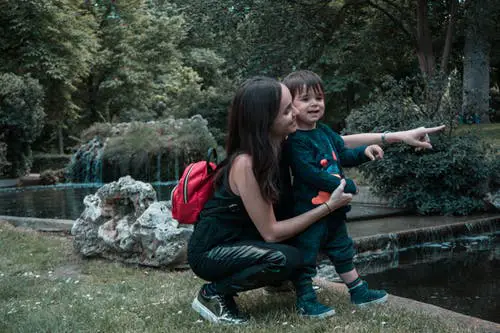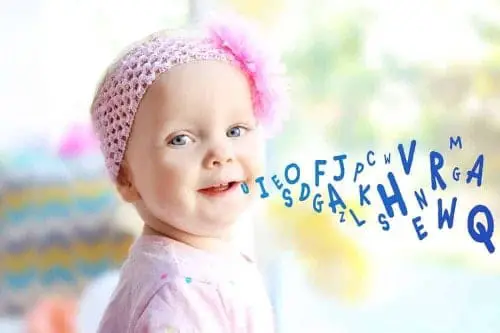By Lori Ennis, M.S. Ed.
It’s often said that parenting is the hardest job anyone will ever have. Still, parents find it the most rewarding, as there is nothing like watching the miraculous little human you mother or father grow and thrive (and often mirror you in the process!) as they turn into adults.
But make no mistake; while parenting is full of amazing moments that fill your heart with love and joy, it’s also daunting. Questions like, “Is my child getting enough nutrition?” and “Is my child sleeping enough (or too much)?” and, “How many words should a 20-month-old say?” constantly roam through a parent’s mind (along with many others) as we only want the best for our children.
Parenting our children not only allows us to teach them how to be compassionate, empathetic and successful adults but gives us the opportunity to grow as humans and partners in humanity as well.
When you become a parent, you enter a new phase of life where you become the main figures in your child’s life; you are the ones spreading knowledge and sharing life lessons and their first thoughts, behaviors and words are based on what they see and hear from you.
So, how do you know if they’re on the right track? How do you know what speech sounds by age development are appropriate and if your child is learning, understanding and using words as would be expected based on age milestones?

Particularly in toddlers, who are often driven by emotion and impulse and desire to explore, it’s hard to know how to communicate because their verbal abilities are really starting to develop and grow. And, because each child grows at his or her own pace, what this looks like in your child may vary from what your next-door-neighbor’s toddler looks like, or even what it looks like between siblings. Your first child may have a handful of words by the time she’s eight-months-old, while your second-born may only have a few by the time she smashes her first birthday cake.
When it comes to looking at the average age for speech development in children, it’s important to recognize that averages are just that–averages. Your child might be well ahead of the curve when it comes to acquiring and mimicking sounds, and yet, may put two-word phrases together a bit later than another toddler. It’s important to know general milestones not to compare your child and cause yourself extra anxiety, but to be able to assess and intervene early if there seems to be an issue.
Toddlerhood is when kids typically develop an interest in effective and strong communication; they want to be heard and they want to get their point across because we adults often seem as if we’re not connecting (in their minds, that is!). But if it seems your child’s communication is struggling, it’s difficult to stay encouraged, or to even know what is appropriate to expect from them.
Here are a few things to consider if you believe your toddler’s speech sounds by age development may not be on target and some resources you can turn to for their growth and success.
How Many Words Should A 20-Month-Old Say? Is My Toddler on the Right Track?
Although some psychologists and pediatricians may suggest that the number of words your toddler is saying doesn’t necessarily matter, that’s not always the case. Speech and Language therapists will tell you that the average age for speech development in toddlers varies, but generally speaking, the number of words your toddler can say is a good indicator of meeting milestones and appropriate expressive language skills.
No, you should not worry if your child is a word or two shy of the recommended milestones, but if it seems that your child does not have the vocabulary you believe he should, it’s worth your time and effort to look into whether there is a need for early intervention.
What to expect when you’ve expected: 20-month-old speech milestones
There are tons of books on what to expect when you’re pregnant, and even what to expect once the baby is born and is growing, but most of the information we get about whether our children are developing as the typical child develops is based on our comparisons with other moms and dads and their same-aged children.
When you find yourself asking, “How many words should a 20-month-old say?” odds are it’s because you’ve seen (or heard) same-aged toddlers either speaking way more or way less than your own child. It’s human nature, and we all do it to some degree.
Just remember that every child develops on their own curve, and teaching your children to speak and respond should always be authentic, fun and never a burden on you or your toddler.
And, hard as it is, try not to compare. Your 20-month-old should be saying a few basic words like ‘mommy/mama,’ or ‘daddy/dada,’ as well as maybe the names of their siblings, friends, pets and/or favorite characters from books or shows. Additionally, very basic response terms like, ‘yes,’ ‘no,’ ‘up,’ and, ‘down,’ are common for 20-month-olds. Typically a 20-month-old will have 12 to 15 words in their regular vocabulary. Even if they don’t, odds are they understand at least that many, if not more, as receptive language comes first and strongest in development.
A typical two-year-old / 24-month-old should be able to construct two- or three-word phrases and typically has about 50 words in their vocabulary. There is an explosive growth of expressive speech between 20- and 24-months, and you should start seeing complex sounds and words develop (banana, cookie, elephant) as well as short phrases like, “I do it,” or “I no want.” You most likely will see your toddler point at items they are looking to name and then mimic those names back, as well as attach pronouns to phrases like, “Her go bye-bye.”
How to Encourage Strong Speech
If you are concerned that your toddler is not talking as much as he or she should be, and you want to work on developing that at home, there are many ways you can organically and authentically develop their speech.
Toddlers love to be read to, sung to and listen to nursery rhymes. The more you introduce them to new words (particularly in repetition from the same songs, nursery rhymes and stories), the more their brains make neural connections with those words in application. They’ll want to mimic fun-to-say things, so making a game of everything is another way to engage them and improve their vocabulary.
Don’t worry if you’re not using the exact word for ‘sock,’ if you’re singing to your child about how “Stinky Sockies Smell So Stinky,”–they’ll love the alliteration and rhythm and pay more attention to them for it. They won’t say ‘Sockie,’ forever (even though trust us, you sort of wish they would!).
Experts suggest talking to your child a lot. We mean A LOT. The more words your child is exposed to, the more they’ll have to mimic and pull from when they are constructing their speech, so talk to them!
When you’re at the grocery store, walk up and down the aisles and talk about what you see, hear and need to get. Ask them questions even if you know they couldn’t care less about the brand of corn chips you buy–engaging them in authentic speech helps them develop their own speech traits too. And, use every opportunity to count that you can. Loading the groceries on the conveyor belt to pay? Count them out. Walking up the stairs in the subway? Count them! The more words your child hears, the better, we promise!

Last but not least, we highly recommend that you call in guests or family members every now and then and let them engage in a dialogue with your toddler. This allows them to be exposed to words they may not normally hear in their daily life.
Practice, Practice and more Practice
Your child’s words will be the most beautiful sounds you’ll ever hear, and we know that if they don’t come easily, that can be frustrating and concerning. That’s why we not only encourage practice at home and within your family, but with specialized therapists who can help if there is an issue with meeting milestones. Good communication starts with the basics, and with practice and reference to resources, you’re off to a great start!

